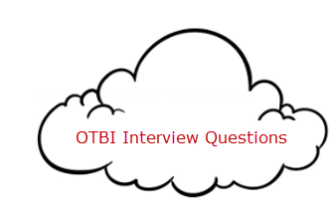This is the collection of the top selected content for hashedin interview questions.
Are you looking for some good interview questions? Have you ever wondered why certain companies hire only candidates who have experience at their company or industry? The answer lies in the fact that they want to ensure that they get the best talent possible.
When hiring employees, employers look for skills and experiences that align with the job description. For example, if you are applying for a marketing role, you should have strong writing abilities. If you don’t, then you won’t be considered.
Hashing In has developed a unique way to identify the best applicants. They create a question bank where they ask real recruiters to rate each candidate’s answers. This helps them to identify the top performers and filter out those who aren’t qualified.
Common questions
- Can you describe your experience with version control systems?
- Answer: I have experience using Git for version control in both personal and professional projects. I am familiar with concepts such as branching, merging, and creating and reviewing pull requests.
-
- Can you explain a technical challenge you faced and how you overcame it?
- Answer: One technical challenge I faced was when I was working on a project that required real-time processing of large amounts of data. The initial solution we implemented used a brute force approach, which was inefficient and led to long processing times. To overcome this challenge, I suggested implementing a more efficient algorithm that leveraged indexing to improve the speed of data processing. This significantly reduced the processing time and improved the performance of the system.
- How do you keep up with new technologies and programming languages?
- Answer: I like to stay current with new technologies and programming languages by reading technical blogs and articles, attending meetups and conferences, and experimenting with new tools and frameworks on personal projects.
- How do you approach debugging code?
- Answer: When debugging code, I follow a systematic approach to identify and fix issues. This usually involves reproducing the error, identifying the root cause of the problem, and implementing a solution. I also make use of debugging tools such as print statements and debuggers to help identify the cause of the issue.
- Can you explain your understanding of object-oriented programming?
- Answer: In object-oriented programming, a program is organized around objects rather than actions, and data rather than logic. Objects are self-contained entities that encapsulate data and behavior, and they interact with one another through methods. Object-oriented programming helps to promote code reuse and modularity, making it easier to maintain and extend code over time.
- Can you describe your experience with database design and SQL?
- Answer: I have experience designing and implementing databases using both relational (e.g. MySQL, PostgreSQL) and NoSQL (e.g. MongoDB) technologies. I am familiar with concepts such as normalization, indexing, and optimization techniques, and I am comfortable writing and executing SQL queries for data manipulation and analysis.
- Can you explain the difference between a stack and a queue?
- Answer: A stack is a Last In First Out (LIFO) data structure, meaning that the most recently added element is the first one to be removed. A queue is a First In First Out (FIFO) data structure, meaning that the first element added is the first one to be removed.
- Can you describe your experience with agile software development methodologies?
- Answer: I have experience working on agile software development teams and have participated in sprint planning, stand-up meetings, and retrospectives. I have a strong understanding of the agile principles of continuous delivery, continuous improvement, and collaboration, and I have experience using tools such as JIRA to track and manage work.
- Can you explain the difference between a thread and a process?
- Answer: A process is an instance of a program that is executing, while a thread is a separate execution path within a process. A process can contain multiple threads, which can run concurrently and share resources such as memory and file handles.
- Can you explain the difference between a static and a dynamic programming language?
- Answer: A static programming language is one in which the type of a variable must be known at compile time, while a dynamic programming language is one in which the type of a variable can be determined at runtime. Static languages are generally more efficient and offer stronger type checking, while dynamic languages are more flexible and easier to work with.
Useful Videos related to hashedin interview questions
[content-egg module=Youtube]
[content-egg module=Udemy]







